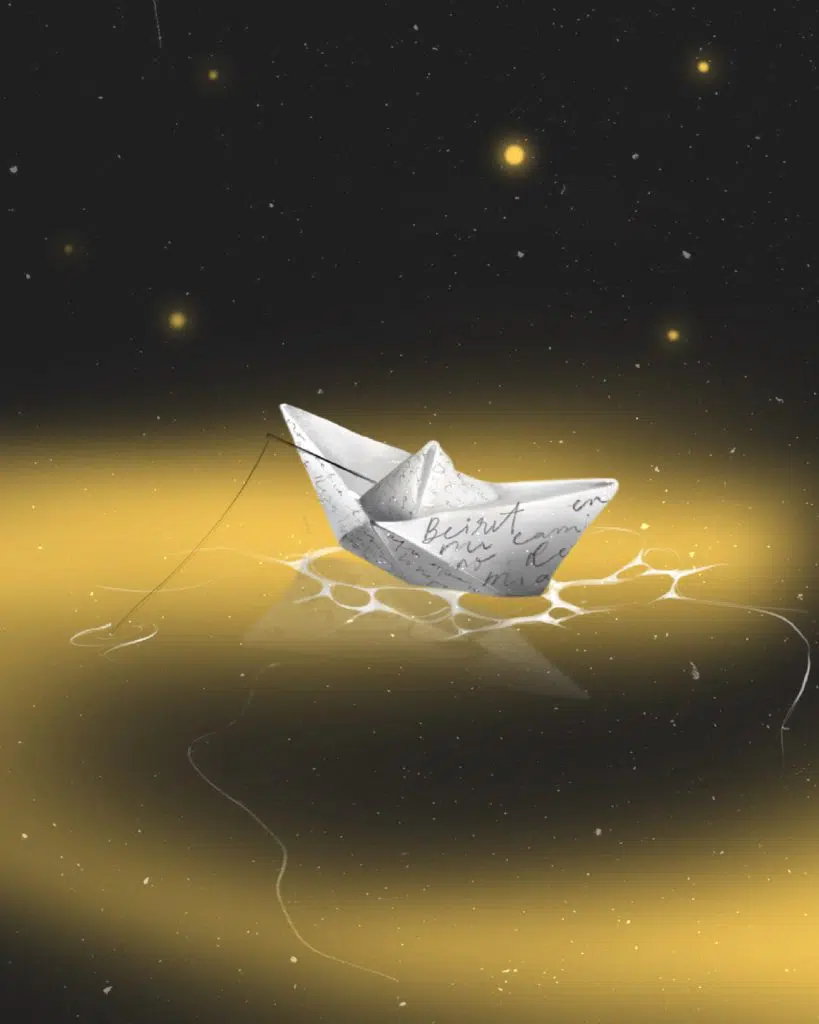By Robert Basler,
Although it baffles me when I try to remember why this was, I used to enjoy occasional stints at the Reuters United Nations Bureau. The U.N. struck me as overflowing with gas bags and buffoons, but it was kind of sweet how they took themselves so seriously and observed actual civilized traditions. I would probably like it even more today, now that rules of civilized decorum are so passé.
Late August, 1982. There was a lot going on in the looming glass tower on the East River, including a multinational effort to bring peace to Lebanon. There had been a seemingly endless civil war in that sad country, followed by an Israeli invasion that had laid waste to a large swath. The U.N. was sending a peacekeeping force from three member countries – Italy, France and the U.S. – to enforce a peace agreement. You couldn’t really count the Italians troops, though, because they wore funny plumed helmets. The Israelis were encamped on a hill above Beirut. They knew everything that was going on, but officially, they were above it all.
Late one Thursday afternoon, I made one final check of the dedicated message wire that Reuters bureaus used to communicate with each other. I saw something quite astounding, from a senior Reuters editor at our London headquarters to the New York news editor. The message said that because the Americans were playing such a big part in Beirut, and because the U.S. Ambassador was allowing only American journalists into his news-rich daily briefings, perhaps New York could spare such a journalist to supplement our Beirut bureau. Please understand, for a British Reuters editor to specifically request an American was kind of like, well, I don’t know, because I had never heard of such a thing. Amused, I left the U.N. to walk cross-town to our apartment. Later that night, in bed, I relayed the story to my wife as an amazing sign that perhaps Reuters was finally recognizing the value of its many U.S. journalists. Barbara, also a journalist, perked up instantly.
“So, what did Evelyn say?”
“About what?”
“About you going to Beirut!”
“I didn’t talk to her. I’m sure she’s already filled the request with one of the senior people.”
“Shouldn’t you at least express an interest? So she knows you want in on the action if something like this comes up again?”
“Sweetie, they’re shooting people over there.”
“I can read. There’s a cease-fire.”
“It’s a very fragile cease-fire. It could collapse at any moment.”
She had me cornered. I dialed Evelyn’s home number and held my breath. Click. I got her machine. Yes! Evelyn, who couldn’t stand to be out of the loop, owned what I’m pretty sure was the first telephone answering machine in New York City.
“Hey, Evelyn, it’s Basler,” I said in the odd voice we all adopted when leaving a message on one of those newfangled things. “I just wanted to say I’m sure you’ve already filled the Beirut thing, but if you need me, I’m available.”
This was great. Barbara had seen me do the brave thing. I gave a big, smug stretch and rolled over in bed. Two minutes later, the phone rang. It seemed, what a surprise, nobody else had volunteered to go over there and get shot at. I was the lucky winner! Would I be able to leave for Beirut tomorrow, Evelyn asked?
Shit! Shit! Shit! Shit! Shit! Shit! Shit! Shit! Shit! Shit! Shit! Shit! Shit! Shit! Shit! Shit! Shit! Shit! Shit! Shit! Shit! Shit! Shit! Shit! Shit! Shit! Shit! Shit!
This was just the start of the hilarity that was to ensue. The Beirut airport was nothing but a pile of rubble, so nobody was flying there. I would later write in a story that the remnants of the Middle East Airlines commercial fleet would fit into carry-on luggage. The editing desk would take that out, because they took everything too literally. There were only two ways to get to Beirut. I could fly to Tel Aviv and hitch a ride to Beirut with the Israelis, but that would be a lot like them doing us a favor and as a news agency, we didn’t like to owe anybody. The only other way, the home office said, was to get to Cyprus and take one of the numerous small boats going back and forth from Larnaca, Cyprus, to Jouniah, Lebanon.
First, I needed a Lebanese visa. I went to the consulate, but it was closed for some Lebanese holiday. Too bad, guess I’ll have to wait until Monday? Oh, I see. The new plan is for me to fly to Zurich, then to Cyprus, then get a Lebanese visa in Nicosia, then sail to Beirut? Okie dokie.
It very quickly got much worse. Nobody realized that the Cypriot government had just cracked down on those ferries, making it almost impossible for them to keep operating. They said the trip was too dangerous. At this point, there was only one apparently batshit crazy Australian couple carrying folks on the 14-hour trip, and they were booked up for weeks. Unfortunately, I only learned this when I got to Nicosia.
Here I was, literally missing the boat to my first big foreign story. It wasn’t going to happen. I had come too far for that. If you want to seriously mess with journalists, just find a place they don’t really want to go, and then tell them they can’t go there. I believe it’s called reverse psychology. I took a taxi to Larnaca’s docks and quickly found the only vessel still making the trip, a converted luxury yacht called the Sea Victory. I also found the lunatic couple who owned it, Nick and Annabelle Head. I’m not making those names up. Nick was rugged, tanned and lanky, and Annabelle was saucy, plucky and self-assured. I gathered she didn’t own a bra. After a brief chat, Nick gave me the bad news. He was seriously restricted in the number of passengers he could take per trip, and it would be weeks until he had an opening.
I thanked him, turned around and slowly began the walk of shame back to my taxi. Nick called out to me.
“Hey, come back, mate!” Nick looked very peeved. “I’m getting seriously fed up with just filling the Sea Victory with nuns and money-grubbing French businessmen. Let me ask you. Have you ever been on a boat?”
“Sure, I’ve done a lot of sailing.”
He handed me a line and ordered me to tie a bowline knot. I did it before he finished asking. I could tie a bowline drunk. In fact, I think I have.
“Okay, mate, the Cypriots can tell me how many passengers I can take, but my crew is my own business. If you show up at 10 p.m. and stand over there in the crew area, you can come. Once we’re at sea, you’re a passenger, and you pay me the $300 fare.”
Suddenly, I was beyond thrilled to be heading for Beirut. I went back to Nicosia, checked out of my hotel and showed up in Larnaca with my suitcase an hour early. Nick was as good as his word. I stood with the crew, trying to look as swarthy and grizzled and Popeye-like as I could, while a Cypriot official looked us over and carefully counted the passengers. When he left, Nick let us board the yacht, and I scrambled up to the top deck, to get as far away from official scrutiny as I could. Shortly after 10 p.m. we shoved off, and within a few minutes Cyprus was only a memory. It was just me and a Mediterranean sky festooned with a billion bright stars. You don’t get a view like this one in Manhattan. This was going to be great.
The Sea Victory was full of surprises. About midnight, someone shouted up that dinner was ready. I figured it probably wouldn’t be worth climbing down to the main deck, but what I found was a dazzling warm buffet. Prime rib, pasta salads, chocolate mousse. Beer and wine. All you could eat. In the bar, passengers were watching a pirated video of “Raiders of the Lost Ark,” which had only recently been released in theaters. Slumber came easily in the cool Mediterranean night – soft blankets wherever we could find some empty deck space.
We awoke to the smell of bacon and coffee, a full breakfast buffet, and a hazy view of the approaching Lebanese coast. As we got closer, Nick and Annabelle said they were relieved that nobody was shooting rocket-propelled grenades at us today. I had to agree with them on that one.
It was a $100 taxi ride from Jouniah to Beirut. I would soon learn that pretty much everything in Lebanon costed out in even $100 bills, so that was all I really needed to carry. The taxi dropped me off precisely at the entrance of the Alexandre Hotel, in East Beirut, and my jaw dropped. There had been a very recent car bombing targeting the hotel. Much of the window glass was missing and in the windows that still had glass, the curtains had been blown off. Newspapers were taped there to block the searing August sun.
The U.S. Ambassador’s briefings were worth their weight in gold. At the first one I told him I was from Reuters. He squinted. “You’re very lucky,” he confided. “We usually only let Americans into these things.”
“I was born in Indianapolis,” I replied.
He motioned for me to follow him into the garden, no doubt to reward me with some deep background information. Instead, he showed me his wife’s bougainvillea and proudly informed me that they were the second-best ones in Beirut. I was grateful to see the civil war hadn’t interfered with expatriate gardening.
I would remember snippets and snapshots of my few weeks in Beirut all my life, but none so vividly as the story of how hard it was just to show up for the party. You know what they say about travel. Getting there is half the fun.
Robert Basler was a life-long journalist, spending most of his career with Reuters, in New York City, Hong Kong and Washington, DC. He reported from Beijing, Beirut, and Ulan Bator, among other places. He went through the Khyber Pass twice and was annoyed to find there were no souvenir t-shirts for sale. He now lives in Indianapolis, about a mile and a half from where Vonnegut grew up, and thinks the Kurt Vonnegut Museum is easily the coolest place in town.

